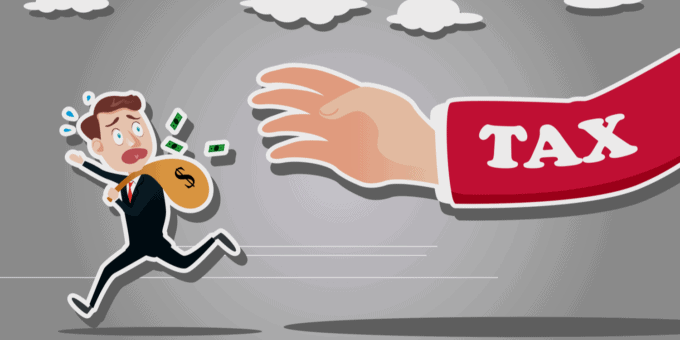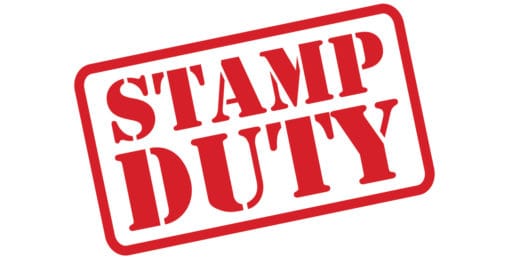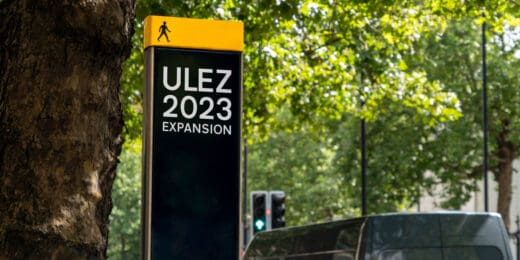Various taxes need to be paid in respect of company shares. Shareholders should be aware of the tax liabilities that may arise when they buy, sell, or make any money from their shareholdings. We consider the specific forms of tax on shares below.
Key Takeaways
- Shareholders must pay 0.5% Stamp Duty on share purchases over £1,000, with specific exemptions available.
- Capital Gains Tax applies to profits from share sales, with relief options like Business Asset Disposal Relief available.
- Dividend tax kicks in on earnings exceeding £500, with lower rates compared to standard Income Tax brackets.
1. Stamp Duty – buying shares
Stamp Duty is most commonly associated with the large sum of tax you need to pay when you buy a house. However, Stamp Duty is also payable on the purchase of shares. The standard rate of Stamp Duty tax on shares is 0.5% of the transaction, which takes effect if:
- shares of any value are purchased electronically through the ‘CREST’ system – Stamp Duty Reserve Tax (SDRT) is deducted automatically
- shares are purchased using a paper stock transfer form and the transaction is over £1,000 – Stamp Duty is payable to HMRC (this is rounded up to the nearest £5). No tax is payable for shares purchased via a stock transfer form where the transaction is less than £1,000
Stamp duty is calculated based on the price paid for shares, irrespective of their actual market value. Transactions where SDRT or Stamp Duty must be paid in respect of shares include the following purchases:
- existing shares in a UK company
- an option to buy shares or an interest in shares
- ahares in a foreign company that has a share register in the UK
- rights arising from shares (e.g. rights acquired when new shares are issued)
Tax does not need to be paid in respect of shares if:
- no money is paid for the shares (i.e. they are given free of charge)*
- a subscription is made to a new issue of shares in a company
- shares are bought in an ‘open-ended investment company’ (OEICs)
- foreign shares are purchased outside the UK (although other taxes may be payable).
* If shares are inherited, these will be liable to Inheritance Tax – similarly, if they are gifted within 7 years of the death of the gifter of the shares.
Special share arrangements
A higher level of SDRT or Stamp Duty at 1.5% must be paid if shares are transferred into some ‘depositary receipt schemes’ or ‘clearance services’ (where the transfer is not an integral part of an issue of share capital).
This can occur when the shares are transferred to a service operated by a third party, such as a bank, where they can then be traded free of Stamp Duty or SDRT.
It is advisable to speak to your accountant if you are in any doubt because this is a very complex area.
2. Capital Gains – selling shares
Capital Gains Tax (CGT) must be paid on any gains (profit) made in respect of shares that are subsequently sold or disposed of (e.g. given away).
How to work out the gain
To work out the relevant gain for the purposes of CGT, you need to calculate the difference between the price paid for the shares and the price at which they were sold. The price difference comprises the gain, which is the sum that is taxed.
In some cases, you will need to use the market value to work out the gain. For example, if the shares:
- are given away as a gift (unless the recipient is the spouse or civil partner of the shareholder, or a charity)
- are sold for less than they are worth
- were inherited and the Inheritance Tax value is unknown
- were owned prior to April 1982
- were acquired through certain Employee Share Schemes
If shares were gifted or sold to you by someone who claimed Gift Hold-Over Relief (see below), use the amount that they originally paid for the shares to calculate your gain.
If you bought shares for less than they were worth, use the amount that you paid for them to work out your gain.
Deducting costs and applying reliefs
Certain costs associated with buying or selling shares can be deducted from your gain, including:
- fees (e.g. stockbrokers’ fees)
- Stamp Duty Reserve Tax paid when you purchased the shares
The following forms of tax relief are available:
- Business Asset Disposal Relief – 14% CGT is payable instead of the normal rates if shares are sold in a trading company for which the shareholder works and holds at least 5% of the shares and voting rights.
- Gift Hold-Over Relief – No CGT is payable if shares are given away in a personal company or unlisted company (instead, the giftee pays tax when they sell the shares).
- Enterprise Investment Scheme (EIS) – CGT can be delayed or reduced if the shareholder uses a gain to buy unlisted shares in companies approved for EIS.
- Seed Enterprise Investment Scheme (SEIS) – No CGT is payable on a gain of up to £100,000 if this gain is used to buy new shares in small early-stage companies approved for SEIS.
- Rollover relief – CGT payment can be delayed if the shareholder sells unlisted shares to the trustees of a Share Incentive Plan (SIP) and uses the proceeds to buy new assets.
Calculating CGT
Once the level of gain has been ascertained, you need to work out the extent of liability for Capital Gains Tax. There is a CGT Allowance of £3,000. This is the total gains you can make without being subject to any tax
Any gains that exceed the CGT Allowance will be subject to the relevant level of taxation. For the 2025/26 tax year, these are:
- 18% – gains within the basic-rate tax band (income up to £50,270)
- 24% – gains within the higher-rate and additional-rate tax band (income above £50,270)
You can use this HMRC calculator to work out the extent of CGT liabilities if the shares sold were (i) the same type, acquired in the same company on the same date, and (ii) sold at the same time. The calculator cannot be used if other shares (or chargeable assets) were sold in the tax year.
When CGT is not paid
Capital Gains Tax is generally not payable in respect of shares that a shareholder gifts to their husband, wife, civil partner, or a charity.
Additionally, you do not pay CGT when you dispose of:
- shares that have been put into an ISA or PEP
- shares in employer Share Incentive Plans (SIPs)
- UK government gilts, including Premium Bonds
- Qualifying Corporate Bonds
- employee shareholder shares (depending on when you received them)
3. Dividend tax – income from shares
Shareholders often receive dividend payments. As long as the amounts fall within their Personal Allowance (the amount of income an individual can earn tax-free in a year), there will be no tax to pay. The standard Personal Allowance is currently £12,570.
There is also an annual dividend allowance of £500, which means that no tax is payable on the first £500 of dividend income.
Shareholders are liable to pay dividend tax on any dividend income above £500 that exceeds their Personal Allowance. The rate of taxation depends on the individual’s Income Tax band.
The current rates of dividend tax and tax bands are as follows:
- 8.75% (basic rate) – up to £50,270
- 33.75% (higher rate) – £50,271 to £125,140
- 39.35% (additional rate) – over £125,140
It is worth noting that these rates of dividend tax are lower than the equivalent levels of Income Tax.
Any dividend payments under the £500 threshold do not have to be declared to HMRC. Furthermore, no tax is payable in respect of shares held in an ISA.
Dividend tax example
A shareholder receives £5,000 in dividends and earns £20,000 in income from their job during the 2025/26 tax year. This equates to total annual earnings of £25,000.
- The Personal Allowance (£12,570) is deducted from their £20,000 wages, which leaves £7,430 of taxable pay
- Their taxable pay is subject to Income Tax at the basic rate of 20% (£1,486) and 8% Class 1 National Insurance contributions (£594)
- £500 of dividend income is tax-free on account of the dividend allowance
- The remaining £4,500 of dividend income is subject to dividend tax at the basic rate of 8.75% (£394)
The shareholder’s total tax bill for the year is £2,474, which leaves take-home earnings of £22,526
How is dividend tax paid?
The way in which dividend tax is paid depends on whether the total dividend payments exceed £10,000 for the tax year.
£10,000 or less to pay
HMRC should be informed by contacting the Income Tax helpline and/or asking them to change the tax code for the shareholder. In this case, it may be possible for tax to be drawn from any wages or pension. Alternatively, it can be reported in a Self Assessment tax return.
Over £10,000 to pay
In this case, a Self Assessment tax return must be completed. If the shareholder is not already registered for Self Assessment, they must register by 5th October after the end of the tax year in which the dividend payments were received.
Please note that the information provided in this article is for general informational purposes only and does not constitute legal, tax, or professional advice. While our aim is that the content is accurate and up to date, it should not be relied upon as a substitute for tailored advice from qualified professionals. We strongly recommend that you seek independent legal and tax advice specific to your circumstances before acting on any information contained in this article. We accept no responsibility or liability for any loss or damage that may result from your reliance on the information provided in this article. Use of the information contained in this article is entirely at your own risk.








Join The Discussion
Comments (4)
Good Morning.
I have a question..
I had shares in a SIP Account but have been moved over to my own Share Portal .
As i got Tupe from my Job to different company.
If i sell my share from will i have to Pay Capital gain tax on my Holding if i sell them.
Many Thanks
John
Thank you for your kind comment, John.
Unfortunately as we are not regulated to provide accountancy advice, we are unable to provide advice on this specific scenario regarding capital gain tax. We would recommend contacting an accountant for further assistance.
Please accept our apologies for any inconvenience caused.
Kind regards,
The Rapid Formations Team
Good morning.
I have a question.
If I set up a new company, with registered office in the UK and declare a share capital of 100 thousand pounds, deposited in a non-European bank, is it possible?
To do this, what financial documents do I have to produce?
What taxes do I have to pay on the declared capital?
Thanks for the answers, to which, up to now, no professional has given me a precise answer.
Ernesto Di Rosa
Thank you for your kind comment.
Unfortunately as we are not regulated to provide accountancy advice, we are unable to provide advice on specific scenarios. We would recommend contacting an accountant for further assistance.
Please accept our apologies for any inconvenience caused.
Kind regards,
The Rapid Formations Team